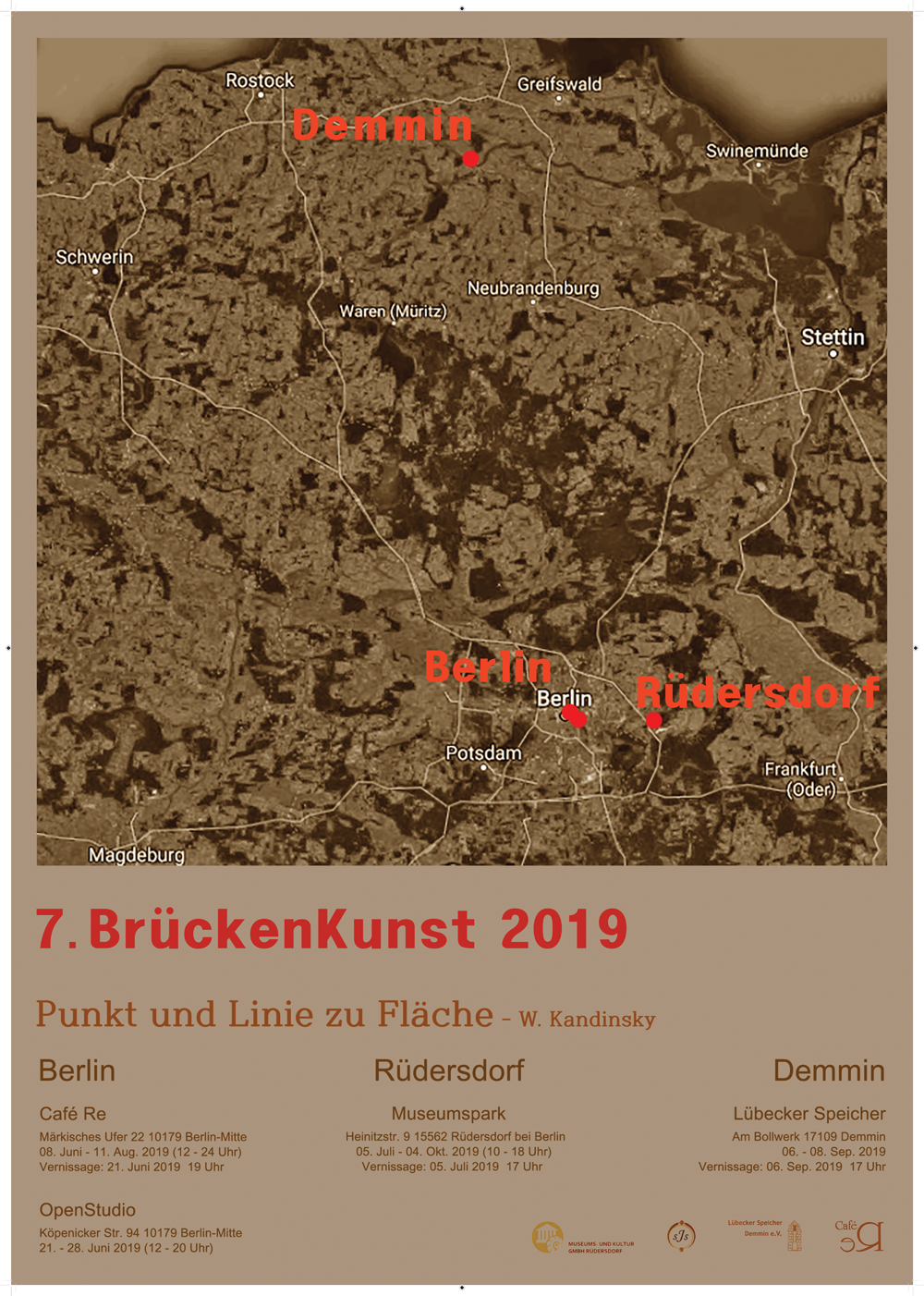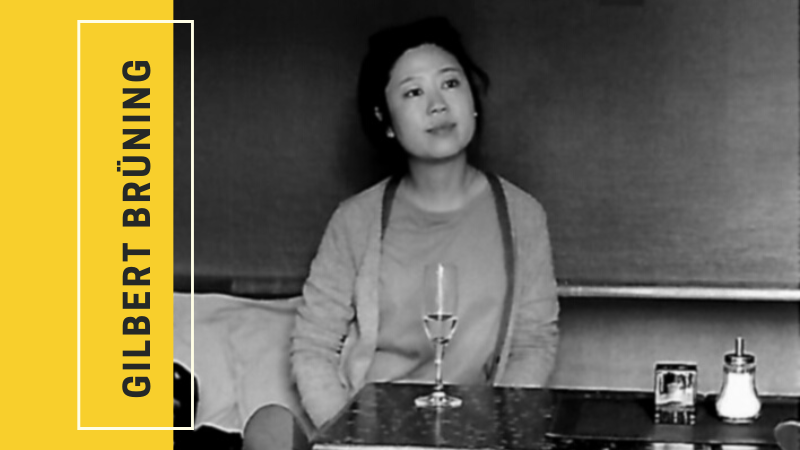Gilbert Brüning
„7_Years_Art_from_Berlin - BrückenKunst 2019“ a documentary film from Gilbert Brüning
1. What is
the story behind your film?
Brückenkunst is an int´l group of artists.
The group has been organizing exhibitions and artist festivals since 2013,
since 2014 in cooperation with the Harbor Festival. I joined Brückenkunst in
2014 and I made shortfilms about the artists in this group annually.
My film “7 Years Art from Berlin – Brückenkunst 2019” is
the last film I made about this group before I left them in 2020.
2.
What should people take away from your productions?
The short
films about BrückenKunst show how difficult it is to achieve recognition
in our world as an unknown artist and it shows that a fimmaker can make a
good work of art which is interessting and beautiful with a simple camera.
3. Do you think
that the films can change people for the better or for the worse?
The movie makers
should try to make their films in such a way that viewers feel they have
learned something new and unknown to them through the film. Possibly also in
such a way that they get a new perspective and a different way of thinking
about things that they have not seen before or have not understood
in that way. If a film manages to do that, it can also change people's thinking
a little and thus possibly bring about a new way of thinking or a rethinking,
and so change the world a little too.
However, that also
depends on how many people actually see the film in the end and how many end up
liking it. Kieslovski once said that you can't change anything with films. But
I mean that Kieslovski was planning to do this with his films, but he claimed
the opposite.
4. How was the
project and the film production progressing at the time of Covid 19?
I shot this film in
2019 and finished editing it in spring 2020. Covid-19 kicked off in early 2021.
During the pandemic I have only made one film with Sri Lankan landscape painter
and artist Anurapala Wijajaweera.
The Corona laws had
a negative effect on me (and my fellow artists) in that we could not carry
through our planned readings of contemporary literature. We wanted to read
modern texts related to the reunification of Germany. None of these plans
have been possible to realize due to the restrictions in Germany but I hope
that the situation will soon improve and that we will be able to follow through
with our planned and ongoing artistic events soon. My sincere hope for the
future is: I wish that the entire world will re-enter the phase of trust and
openess again and that hopefullness for a better future with a mutual respect
for different kinds of beauty and freedom is possible for everyone on this
earth.
5. What
creation style did you use in the production of your project? What cameraman elements did you use?
I mostly film
spontaneously and instinctively. For this reason I try to capture with the
camera as best I can the most exciting and the most interesting moments
and record them using the best angles possible. It is my hope to a documentary
film that reflects the reality, the spirit, and the actual current situation as
it really is.
6. How did you
select the actors for your project?
I shoot only
documentary films. I choose the scenes and actors from the film
materials that I have. Later I choose the scenes and actors from my film
instinctively while I am cutting the film.
7. Why do you
think your film should appeal to distributors?
If there was a formula for becoming a
successful artist and my film would show that, then everyone would probably
want to see the film right away. Unfortunately, my film cannot show this, but
it shows the dedicated and hard work of talented artists. Even if the
Brückenkunst artists have not had a social breakthrough to this day. I am glad
that I was able to accompany the artists on this very difficult path for many
years. I think that distributors should also be interested in less successful
artists and not only in successful artists. I think that my films are appealing to the distributors
also for other reasons: the rawness in the filming technique, the uniquness of
the Asian artists and the cool Live music in the film.

8. At
which festival has your film been screened?
The film „7 Years
Art from Berlin – BrückenKunst 2019“ has yet screened at aproximately 170
filmfestivals worldwide so far. It has received about 36 awards.
9. How did your
acquaintances react when they first saw the film?
They were very
amazed! I haven't heard any criticism so far, but unfortunately hardly any
suggestion for improvement either. Sometimes I wish I could get a little more
constructive criticism from my friends, but no avail.
10. If you could change something in your film, what would it be?
I wish to have a
great mentor who would help me with my films to find a way how to improve them,
that would be wonderful! Unfortunately I could not find a mentor yet although
so many years I was searching for one!
11. Which movies are your favorites and why?
Roman Polanskies
„The Pianist“ & „Dr Schiwago“ from David Lean will always be my favorite
films for all times.
12. What topics do you like to address in your stories?
Intercultural
exchange and understanding across cultural borders. Poetry & love.
13. What is your motivation in making films?
As already
mentioned, intercultural understanding. International understanding. I am an
observer of people and then love to translate my observations creatively and
artistically into stories and films.
14. Which contemporary filmmakers motivate you the most?
I have been quite
affected by the two contemporary filmmakers -
the Polish filmmaker Agnieszka Holland and the very famous American
filmmaker Francis Ford Coppolla.
15. What projects to you plan to shoot in the future?
This and next year I
am shooting a film about the shadow theater for the conventional stage with the
artist – Anurapala Wijayaweera and I make a film together with an american
artist Amadea Leonore – JJ about the Swans in Berlin-Grunewald.
Short Director Biography – Gilbert Brüning
My name is Gilbert Brüning. My father was a pastor in the Jesus-Church in Berlin-Kaulsdorf. My mother worked for years as an artist and designed posters and pictures in Berlin-Kaulsdorf.
In 1995 I began my Cultural Studies at the European University Viadrina in Frankfurt/Oder and in 1998-1999 in Krakow and 1999-2000 in Buenos Aires; from 2003 till 2004 I lived in Thailand, Cambodia and Vietnam. Many of my artistic inspirations come from this experiences abroad. After this time, in 2006 I started to make documentary films. My films has been yet presented at many Filmfestivals worldwide. In 2009 I received the Golden Palm Award in Mexiko and in Los Angeles a Honorable Mention Award 2009 for a documentary film about Krakow. Since then my films were presented at many filmfestivals worldwide. For example in Bangladesh, France, Switzerland, Canada and at the Short Film Corner of the Cannes Filmfestival. In the last two years my films has been selected in more than 300 int´l filmfestivals. It has also received about 64 Film Awards from these filmfestivals in the last two years. I am also at present making a film about the shadow theater with the artist from Sri Lanka Anurapala Wijayaweera and about a unique Swan family in Berlin-Grunewald together with the american saxophonist and photographer Amadea Leonore – JJ.
The Imdb_Link for the trailer of the film about Krakow I made in 2006 till 2008 https://www.imdb.com/title/tt1628001/
Fotos in the film „7 Years Art from Berlin – Brückenkunst 2019“ taken by Amadea Leonore - JJ


